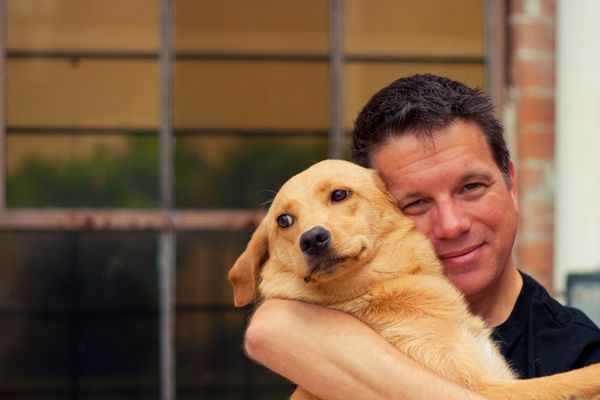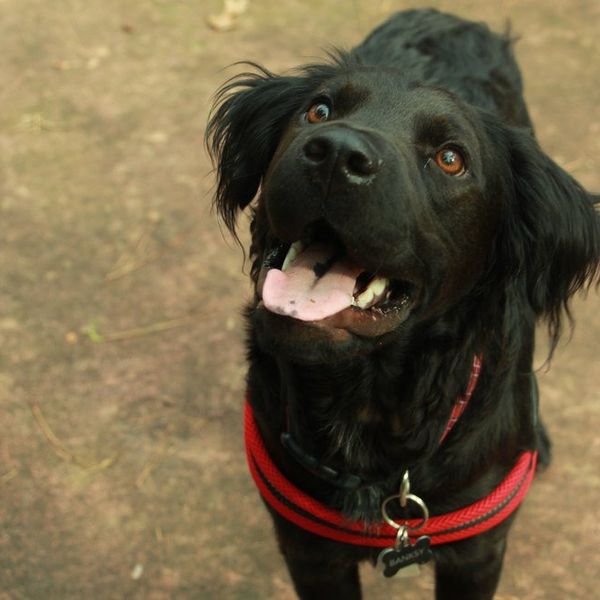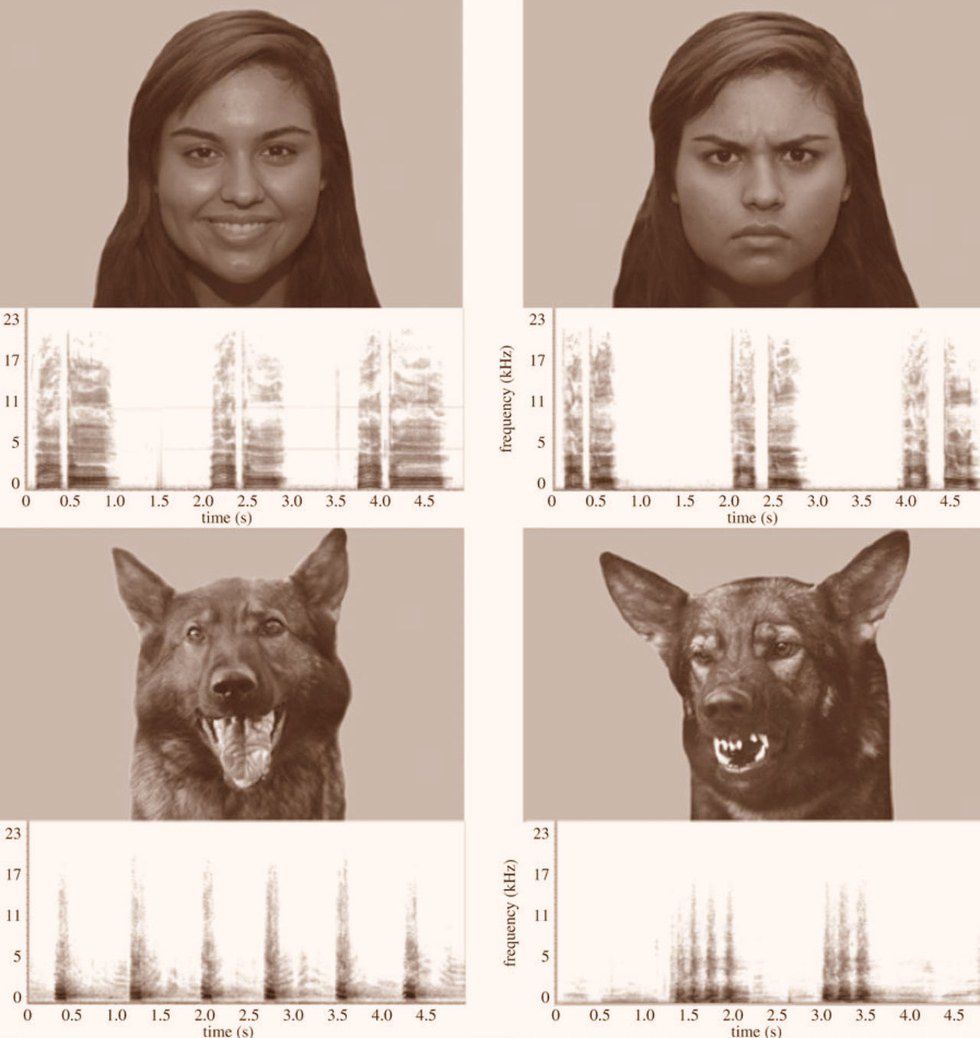As any dog owner can tell you: Dogs are man's best friend. They are kind and loving and always seem to know when you're upset and be exactly where they need to be, despite the fact that they don't understand most of what you say. Scientists have confirmed that man's best friend know the difference between positive and negative emotional states from more than just learned behaviors, meaning that they know when you're happy or when you're upset.
A study was performed by the University of Lincoln’s School of Psychology where seventeen domestic dogs were shown pairs of pictures. One of the pairs was of a person and the other a dog. One of the pictures in each pair showed a happy or playful emotion and the other picture was angry or aggressive. The researchers also played sounds to accompany the pictures, sounds of playful or aggressive barks or a person saying "come here" in Portuguese, a language unfamiliar to the dogs, in either a cheerful or angry tone.
These distinct sources of sensory input, the input being the photos and audio clips, were played simultaneously to the animals, without any prior training. The research team found that the dogs spent significantly longer looking at the facial expressions which matched the emotional state (or valence) of the vocalization, for both human and canine subjects. Meaning that the dogs tended to look at the picture that matched the tone of the voice, picking out the right human facial expression more often than not. Dogs can recognize emotions in humans by combining information from different senses - an ability that has never previously been observed outside of humans, a new study published today reveals. This implies that they could hear an angry sounding person and match that to the angry face showing that they understand emotions both audibly and visibly.
Dr Kun Guo from the University of Lincoln’s School of Psychology where the test was performed said:
The study shows exactly what every dog owner already knows, our pups understand how we're feeling and that may be exactly why they always seem to be right there, by our sides, when we need them the most.






















